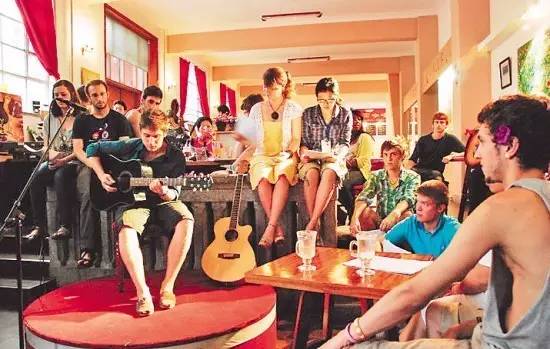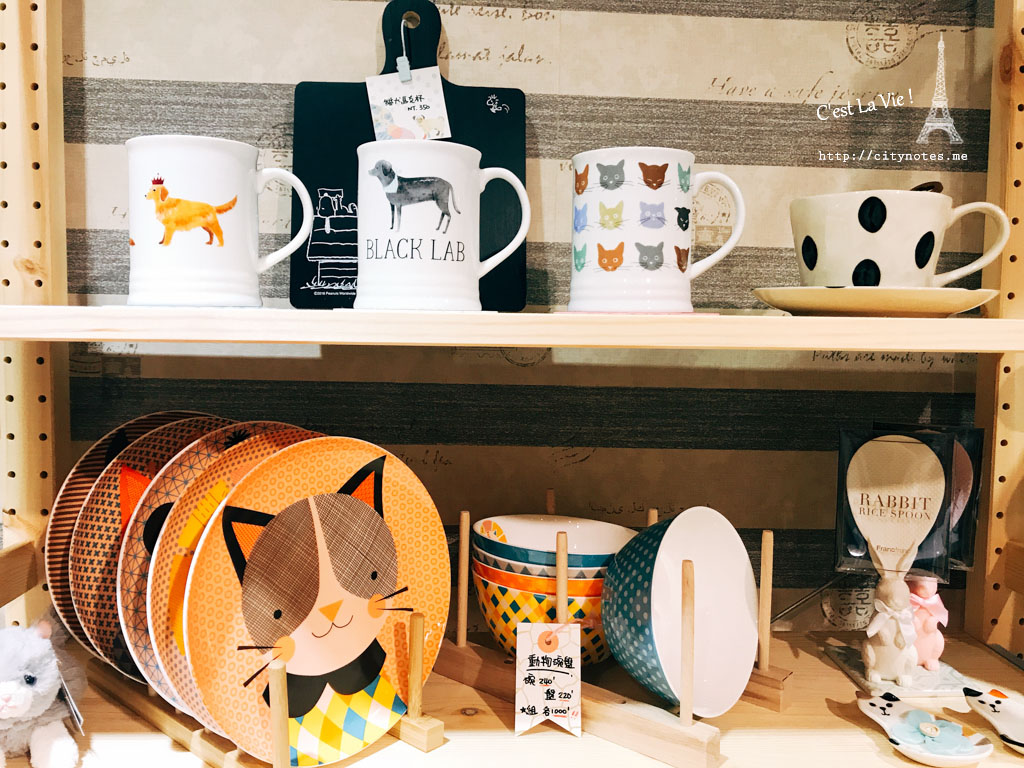Open a small cafe, do you want to learn "positioning"?
For professional baristas, please follow the coffee workshop (Wechat official account cafe_style)

A week ago, Jack Trout, the father of location, died, and people who had read the theory of location were mourning on social networks.
Over the past decade, "positioning" theory has been regarded as one of the most important business theories in the 20th century, and many business owners are familiar with "occupying the mind", "leadership law" and "ladder law".
It is the enlightenment of many people from product management to brand management. In the past two years, the catering industry has achieved one of the most exciting parts: continuous subtraction menus, more and more single-category stores, and even writing product names into their own signboards.
To open a cafe, under the current market situation of insufficient rigid demand for products, it may seem a bit ethereal to talk about the theory of "positioning" at first. But at least, you should have thought about the question of positioning--
"what kind of cafe do you want to open for whom and where?"
Today's article discusses the "self-positioning" of a cafe from the perspective of location.
one
If you don't sort out the "positioning", you have to "make up" from time to time.
Let's first take a look at a restaurant case--
It is not the first time for Xiao C to start a business. He used to open a restaurant and lived a good life. Coinciding with the demolition of the old house in the old shop, he discussed with his friends the opening of a new store.
Soon, on the recommendation of a friend, the new store was located far away from the city center, but "there are too many neighborhoods nearby".
Xiao C, who has experience of opening a shop, knows the routine of "counting lights to see the occupancy rate"--
In the evening, the lights are bright, which proves that the occupancy rate is good. With so many people and a rigid demand for food, are you still worried about running out of business?
So, in a few days, he won a 200-square-meter facade, rent, decoration. 800000 yuan was invested in the early stage, but when the store opened, it was not the case anymore.

▲ is still not the same as the reality.
First of all, the occupancy rate is falsely high. Small C later found that although there are many neighborhoods near the storefront, the owners are either decorating the house or have just moved in, and the actual occupancy rate is not as good as the number of lights.
To make matters worse, there is something wrong with the positioning of the restaurant.
There are many houses in this area, most of which are lived by the elderly, with few young consumers, low spending power, and more light taste.
Small C here, it happens to be a large storefront, dinner-style environment of Sichuan cuisine restaurant, the food is generally very spicy. In addition, Xiao C was good at dumpling shops and was not familiar with the kitchen management process involving more ingredients, which affected the speed of serving.
For a variety of reasons, even if there are occasional guests, they will not look back once.
As a last resort, Xiao C changed the chef's team to home-cooked dishes that were not so spicy, but consumers who had been "injured" were unwilling to try again.
This is the result of not figuring out your own position and rushing to open the store first.

▲ thought is not clear, did not think of a good location, the location is also blind
Once saw a sentence summed up very well: do not take the store management to challenge the environmental attributes of the location.
Especially for cafes, the target consumers are already sensitive to temperament and temperament, and if you are not careful, you will lose a number of target customers.
In order to make a profit, the cafe should position itself before choosing a location. To exaggerate, you really have found a suitable location, and you can even match the location adjustment of the cafe itself.
Let's take a look at the five basic categories of cafes based on location selection--
two
Location-based location of five kinds of cafes
one
Business type

The ▲ competition is too fierce.
Advantage: "take a fancy to passenger flow!" Popular Upupup~ "
Question: "Ham?! Is there a Starbucks next to it? Is there a Pacific Ocean across the street? Is Costa coming, too? "
Tips
Different floors of the mall are suitable for different cafes--
Floors dominated by supermarkets and snacks are often characterized by fast consumption, more small shops, emphasis on efficiency and take-out mode.
On the other hand, if you are on the floor of a large restaurant, consumers have a clear goal of "eating" and should consider whether they want to have more meals in their own cafes.
Located in non-catering but more main stores on the floor, when consumers are tired and need to rest, the environment of the cafe is particularly important.
In addition, to make further berth choices in the mall, sometimes it is not the mall planning or the location you imagine is the most suitable. Think from the consumer's point of view, according to the moving line and the external traffic environment of the shopping mall. simulate the possible trajectory of consumers several times.
two
Campus type

▲, this is the reason why students are more attractive to come.
Advantages: "exam review, club activities, class gatherings all come here."
Question: "the winter and summer holidays are the most annoying."
Tips
From the perspective of self-positioning, coffee in campus cafes may not be the most important, you know, your competitors in products include, but are not limited to, milk tea shops, ice cream shops and even fast food restaurants.
Perhaps the point of differentiation is in the environment, which does not refer to the decoration of the store, but how to interact with the student group and whether some activities can be organized or undertaken in order to generate more cultural added value.
To be prepared, campus cafes go out of business for a few months a year.
three
Community type

▲ Portal: opened in a community with access control, this 12-year-old cafe earns 30,000 yuan a month by selling coffee only.
Advantages: "warm light, green plants, coffee fragrance …" A 'generalist' who satisfies the function of the urban living room. "
Question: "Please don't ask'do you have irrigated rice for sale'?"
Tips
Many people hope that there will be a cafe at the gate of their community. But community cafes tend to have more players and fewer winners.
One of the keys is to know as much as possible about the household composition and consumption habits of the community when selecting the site.
The restaurant of Xiao C mentioned at the beginning is an example.
Let's take a look at another example: there is a cafe in Qingdao with an area of only 12 square meters. The chairs can be counted by both hands. The cheapest American style is 15 yuan, and the most expensive one is 25 yuan kiwifruit juice.
Although the monthly rent of the store is only 2000 yuan, what is "scary" is that this community is also equipped with access control. But there is no wifi, no toilet, no dessert. Isn't that worrying?
But this store has an average turnover of 1000 + yuan a day. In the case of low related costs, it can be said to be "happy".
The main reason lies in the composition of the residents in this community. First of all, there are more housewives, and the problem of people in the community "going home at night" is not obvious. They regard it as a small living room and chat with each other. At the same time, a considerable number of households have a rigid demand for coffee.
four
Scenic area type

▲ was afraid that the expected person would not come from the crowd.
Advantage: "are you tired of playing? Do you need a break? You have to order something, right? (smiling face) "
Question: "other people's scenic spots' public', their own choice of this' Sen'?"
Tips
The scenic cafe itself is special in terms of location--
Given the specific environment and the psychology of tourism, consumers' various needs are superimposed. As long as the scenic spot is famous enough and the location of the cafe is not biased, there is basically no need to worry about business.
Needless to say, if you want to open a cafe like this, you are worried about the rent. Do you have the strength to enter a hot spot, or a more popular scenic spot?
five
Office type

The ideal state of ▲ is like this, but what about reality?
Advantages: "closer to the potential rigid demand, a little closer."
Question: "Huh? "Star Daddy, the Devil King" appears again? The first floor still faces the street? "
Tips
There are more office cafes.
Those who have the strength to sit on the first floor and face the street on one side, such as the "Star Dad" you often see.
Micro cafes with plug-in and vending machines are also common in office buildings or high-tech parks.
To open a public cafe, you need to take the time to judge whether employees in the office building are under pressure to consume a cup of coffee and what percentage of them are in the habit of drinking coffee.
It is worth mentioning that there is another kind of "floor coffee" in the office building, which is often warm in literature and art, living on the middle floor, getting out of the elevator, and can only be found with twists and turns in the not-so-bright corridor.
It seems that rents are cheaper than shops, quiet and romantic enough not to face the streets, and face white-collar workers directly, but in fact, they are often too optimistic about the attractiveness of their stores and the consumption frequency of their target customers. in addition, there is almost no natural passenger flow in high-rise buildings, so they have to struggle on the survival line.
When you don't have enough money to support your feelings, don't try it easily.
What kind of cafe do you want to open for whom and where? Have you made up your mind?
Important Notice :
前街咖啡 FrontStreet Coffee has moved to new addredd:
FrontStreet Coffee Address: 315,Donghua East Road,GuangZhou
Tel:020 38364473
- Prev

Taipei Coffee Cafe Farfalle Fa Lei Coffee is a good place to talk.
Professional barista communication Please pay attention to the coffee workshop (Wechat official account cafe_style) it rained twice after noon to evening. None of me was spared. I walked awkwardly into Farfalle Farley coffee, which was still in trial operation, like a rabbit escaping into the grass. For a long time, the panic could not be calmed down. The world outside the window crumbled like the beginning of a science fiction movie, but I hid in a room that looked like a romantic movie.
- Next

The new petty bourgeois cafe that Shanghai must go to in June to pull the grass together.
The exchange of professional baristas please pay attention to the coffee shop (Wechat official account cafe_style). The weather is getting hotter and hotter in June, and the atmosphere of early summer is approaching. This is the season of terraces and flower skirts. At the same time, it is also the season of afternoon tea and cafes. The editor has searched for the 10 newly opened small-capital cafes recently. Choose a sunny afternoon and go together.
Related
- What documents do you need to go through to open a coffee shop? coffee shop coffee shop certificate processing process
- How to purchase Coffee beans in small Cafe how to choose a suitable supplier for domestic Coffee supply Company
- How to drink Starbucks Fragrance White Coffee? how to make Australian White Coffee? what Italian coffee beans are recommended?
- The Story of Flora Coffee: the name of Flora Coffee Bean and the implication of the Flowers on Florna Coffee
- How much does a cup of coffee cost? How much is the profit of a cup of coffee? What is the profit of the coffee shop in a year?
- Yunnan small Coffee, known as "fragrant Coffee", introduces the characteristics of Alpine Arabica Coffee producing areas in Yunnan, China
- 2023 latest Starbucks full menu price list how much is a cup of Starbucks coffee what is better to drink the most popular hot and cold drinks recommended
- Starbucks different kinds of Coffee Price list Starbucks menu 2023 Top Ten Best drinks in Starbucks
- Starbucks Spring praise Comprehensive matching Coffee Bean theme Story Packaging implication and taste description
- The cost of a cup of coffee latte American coffee cost price and selling price

